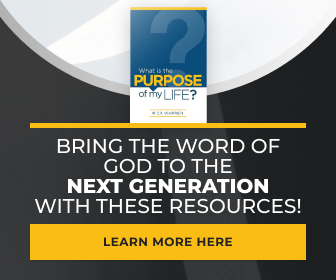Celebrate Recovery
Celebrating Recovery with Our Veterans

This will not sound right at first, but hear me out. Many military veterans find ourselves actually missing the war after we leave the war. I first noticed this in June 2003 while talking with some young Marines after we ousted the Iraqi dictator, Saddam Hussein, from power. This was toward the end of my first of four deployments. We were just sitting around in the desert waiting for a ship to come and take us home.
These young Marines were complaining that they didn’t want to go back home. I couldn’t believe what I was hearing! I couldn’t wait to go home! But for most of these young 19- to 21-year-old corporals and lance corporals, their participation in the Iraq War was the most important thing they’d ever done in their lives. The young men who served in their platoon had become like family to them; for some, this was the closest they’d ever had to family.
These young men had figured out that going back home meant that they would likely lose the sense they were doing something important and the sense of family in one stroke. And there’s the rub. After working with a tight-knit group of friends, a member of the American military transitions from doing something she feels is truly important to performing unimportant jobs alone.
The transitions from my four deployments have been relatively smooth, much smoother than many of my friends. I was curious. Why were many struggling and some not? I went in search of an answer. Why do so many veterans struggle? What are the common denominators for those of us who don’t experience that struggle as intensely?
I was led to the work of anthropologists like Brandon Kohrt, Danny Hoffman, and Sharon Abramowitz. They have identified two important needs that crucially affect a veteran’s transition back to civilian life. Fortunately, for my family and me, these two needs are met nearly every day.
1. Veterans need a sense of belonging. In the military we call that sense of belonging, unit cohesion. Unit cohesion is something that is difficult to reproduce in the civilian world. The closest likeness might be taking part in a sports team, but like most, I haven’t been part of a sports team since I was in high school. However, I do have a place that provides me with a sense of belonging—my church.
The church has supported my military career every step of the way in tangible ways . . . care packages galore, letters, emails. They even collected soccer balls so I could give them away to Iraqi children. My church has given me an excellent sense of support and belonging. The men of my small group Bible study took care of incidentals that came up with my family while I was deployed. They even replaced my back porch to surprise me when I returned home!
I have recently discovered that one of the best things my church does is provide me with a sense of belonging, especially the guys in my small group Bible study. We’ve been meeting for over nine years and we are close friends. As it turns out, having close friends and a solid sense of belonging is critical for healthy transitions from war to peace, from military to civilian.
2. Veterans need a sense of mission like they had on the battlefield. I had lunch with an Army vet a few months ago. He was talking about how much he missed military service: “I was doing important work. I was part of something much bigger than myself.” He said, “Now I work for a bureaucrat who today spent half an hour criticizing me and my office because we used red pencils on a report.” He said, “I’m dying inside. I can’t stand this minutiae. I feel like I’m losing my mind.”
I hear that story repeated often from veterans who are struggling with the transition issues.
I didn’t have too much struggle in this department either because, again, my church and my relationship with Christ have provided me with a clear sense of mission. I am living to make a difference. That’s my mission. I am motivated to use my time, talent, and treasure to spread the message of the Gospel with effectiveness and compassion.
So with only a few minor hiccups, all of my transitions from deployment to home have gone fairly smooth. I credit Christ and his church for meeting the deep needs of my soul—belonging and mission.
In the Church, we call that sense of belonging—that unit cohesion, Christian community. Celebrate Recovery does that better than anything else we’ve got going at my church. The Open Share groups and the Step Studies are the closest models we have for producing unit cohesion in civilian life.
Jesus gives our soul something that it craves deeply, a sense of purpose and mission to help others. That sense of mission is baked into the DNA of Celebrate Recovery. I think veterans of the U.S. military are prime recruits to help Celebrate Recovery accomplish the mission to get out there and help others to overcome their hurts, hang ups, and habits.
I’m genuinely excited about Celebrate Recovery’s Welcome Home outreach. Celebrate Recovery is perfectly poised to step into the veteran’s community and offer real solutions to the transitional issues they are facing. It’s the perfect opportunity for us to invite them into the Celebrate Recovery family for belonging. It’s the perfect opportunity to offer them the Gospel of Jesus Christ and to join the worldwide mission that is the Great Commission.
Quint Pitts
National Director, Welcome Home
Celebrate Recovery















